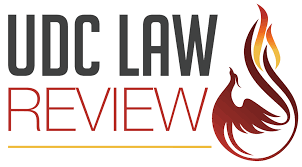
Abstract
The Individuals with Disabilities Education Act (IDEA)1 provides each child with a disability the opportunity to receive educational benefit in an appropriate program. The individual needs of the child drive the often resource intensive programs. On the other hand, public charter schools focus on providing more choices for education by aiming to do a better job with less money. Public Charter Schools accountability for progress and fiscal responsibility means that schools focus on doing more with less resources for the school as a whole. Public Charter schools' mission of unique innovative instruction, free from local and state regulations that would limit their experimentation, depends on freedom from regulations, but the federal disability law that protects the rights of disabled students depends on regulation, thereby limiting the independence of charter schools. How can these seemingly different missions fit together? Despite the fact that public schools see charter schools as competition for student funds, the two systems must work together to provide appropriate programs for students with disabilities.
First Page
145
Recommended Citation
Rebekah Gleason,
Charter Schools And Special Education: Part Of The Solution Or Part Of The Problem?,
9
U.D.C. L. Rev.
145
(2007).
Available at:
https://digitalcommons.law.udc.edu/udclr/vol9/iss1/5

